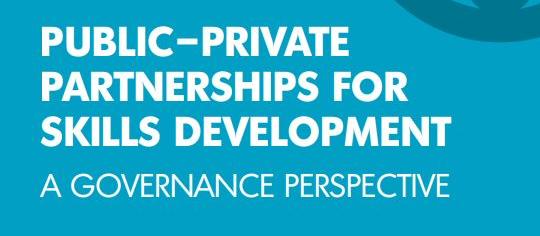
Public-Private Partnerships for inclusive skills development
Public–private partnerships (PPPs) that focus on skills development are one form of collaboration found in a country’s VET system. Recently published ETF Reports (Volume I and II) resulting from an ETF study on our partner countries in the EU neighbouring regions provides an overview of the various forms of PPPs; it clarifies what they are and how they function, and examines the conditions necessary for their formation and sustainability, as well as the risks they entail and their potential for success.
The integration of mutually reinforcing polices within the 2030 Agenda and the Sustainable Development Goals is a governance approach suited to the skills development field. It helps to avoid the fragmentation of policies that fail to take into account the diverse forms and needs of skills development within a life-wide and lifelong learning perspective. Within this context PPPs can play an important role in the development of high-quality skills, improving expertise in specific sectors, contributing to social inclusion and motivating companies to invest in skills.
Evidence from the 23 case studies shows VET social partnership has taken root but achieving sustainability will require more time. PPPs in the field of skills are meaningful if they focus on outcomes – bringing benefits to the learners – and address the potential risks that are inherent to any form of public–private cooperation on a public policy.
This publication can be used by country stakeholders, national and international agencies, European and international organisations as a resource for enhancing PPPs as a means for high-quality skills development and innovation in VET, featuring within the European Skills Agenda and the EU VET Recommendation. The report can provide a useful resource for expert advice in the design and monitoring of public interventions on skills development to support lifelong, accessible up-skilling and re-skilling for all.
The ETF analysis also offers policy lessons on VET systems governance based on country comparison. Policy learning on governance should consider the adaptation and differentiation of institutional arrangements depending on the country context. A policy-learning approach in VET governance implies mapping and comparing strengths and weaknesses rather than identifying prescriptive blueprints. This ETF analysis of PPPs elaborates on these issues as a contribution to the international debate on the means of developing human capital.
Did you like this article? If you would like to be notified when new content like this is published, subscribe to receive our email alerts.